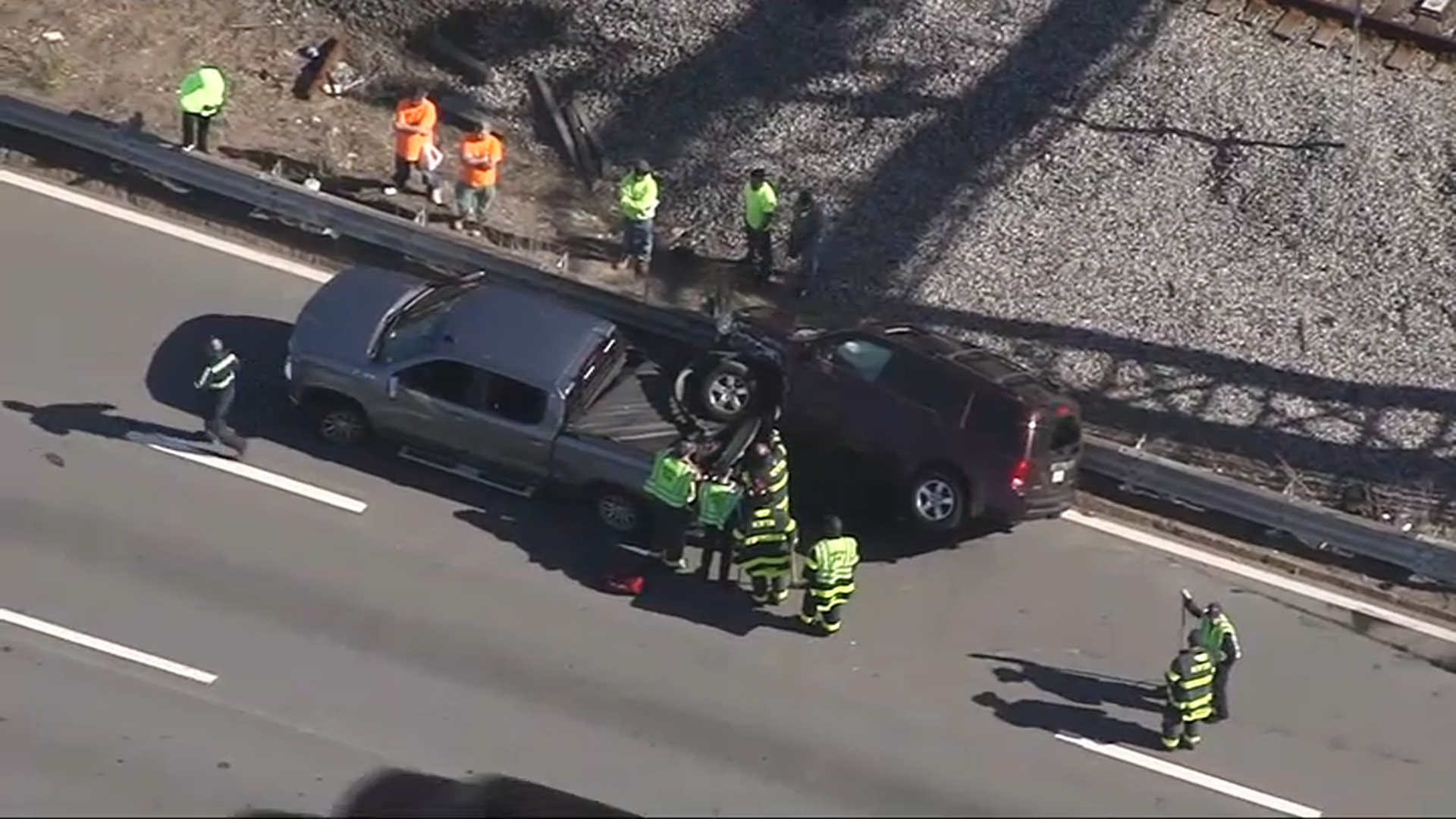Tyler Lawhorn shakes as he sits in the Maricopa County Jail in Phoenix. The 28-year-old Arizona man says he needs a fix every six hours — what he calls the sweet relief of heroin coursing through his veins.
"Arms, legs, I used to do my neck," he said, pointing to parts of his body. "I'm running out of veins though, you know? I'm running out of good spots."
Lawhorn was arrested hours earlier on drug charges. To pass the time in jail, he's agreed to be the final exam of sorts for about a dozen Massachusetts law enforcement officers studying to be Drug Recognition Experts, or DREs. They are officers specially-trained to spot when drivers are high. They come to Arizona because it is one of the busiest jails in the country, with many inmates in custody on drug charges – making it an ideal spot for the officers to test their skills.
Lawhorn explains what it's like to drive after using drugs.
"Well, if you just got high, you could be nodding off," he said. "And that's not good. You could hurt somebody, kill somebody."
We asked if he'd ever hit someone. "Not that I know of," he laughed.
But Lawhorn acknowledged the possibility that he doesn't remember.
Local
In-depth news coverage of the Greater Boston Area.
"Black out a lot, you know?" he said.
Since there is no legal roadside drug test in Massachusetts, police departments rely heavily on DREs. The officers are typically called in once an arresting officer determines that a driver isn't drunk, but impaired by something else. The officers use a federally-endorsed, 12-step evaluation to try to determine what class of drug a driver may be impaired by — from narcotics like heroin to stimulants like methamphetamines.
The protocol starts with an interview to rule out underlying health issues, a physical exam and then on to a breathalyzer and field sobriety tests. But the skills these men and women learn go far beyond walking the line. They're searching for signs so-called "regular" officers likely wouldn't even know to look for.
Officers bring drivers into a "dark room" to see how the driver's pupils react in certain light. They look for track marks hidden in elaborate tattoos or eyelids, nasal damage from snorting drugs and mouth sores or cuts from bits of kitchen scrub pads addicts use as drug filters. And finally, the DRE asks for urine or saliva for a toxicology screen.
While waiting for an officer to take her back to her cell, inmate Kaitlyn Rheingans shared some of her history, talking about a recent car crash.
"I ended up taking a Xanax to feel better and noddded off," she said.
The young mother's face is a roadmap of abuse — marijuana, cocaine, meth, heroin. Her license was suspended after she crashed her car into another driver's.
We asked if she felt guilty for getting behind the wheel.
"Yeah," she said. "I mean, I feel guilty that my car got messed up."
Rheingans said driving high is out of necessity — to shuttle her kids and to feed her habit.
She says she won't stop, no matter what.
That pull of addiction terrifies Braintree police Sgt. Phill Yee.
"She's a car accident waiting to happen," he said.
Yee is just one of 126 DREs throughout the state. Many departments are forced to share because training is lengthy and expensive.
"It's everywhere," he said. "It's not just Braintree. It's Holbrook — it's every community."
DUI defense attorney Steve Jones insists DRE evaluations are subjective and don't hold up in court.
"They are not offering an expert opinion," he said.
We asked him if he thought the DRE program was junk science.
"I'm not sure I'd get to the point of junk science," he said. "But by way of proof beyond a reasonable doubt?"
He shakes his head no.
"It might be probable cause, but it's nowhere near enough to be proof beyond a reasonable doubt," he said.
That dismissal is something these officers are used to. DRE instructor and Cambridge Police Sergeant Jon Cameron says because the evaluation is subjective and not an exact measure like blowing a .08 for drunk driving, it's a roll of the dice what weight judges, or even some prosecutors, give a DRE's testimony in court.
"It's extremely frustrating," Cameron said. "The laws that are currently on the books are so archaic."
Any driver can refuse a DRE evaluation. So unlike alcohol, where you lose your license automatically for refusing a breathalyzer, there is no penalty for refusing a drug evaluation.
"Somebody can pop Vicodin or do a line of coke or do heroin and get a slap on the wrist and sent back out on the street again," Cameron said.
But DREs hope — until laws change — their testimony can keep drugged drivers off the road longer.
As for the inmates they evaluated in Arizona, tox screens showed the officers correctly assessed Lawhorn. Rheingans said they got her right, too. She told us she had taken meth, amphetamines, oxy and heroin.



